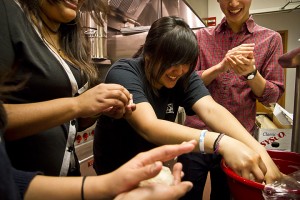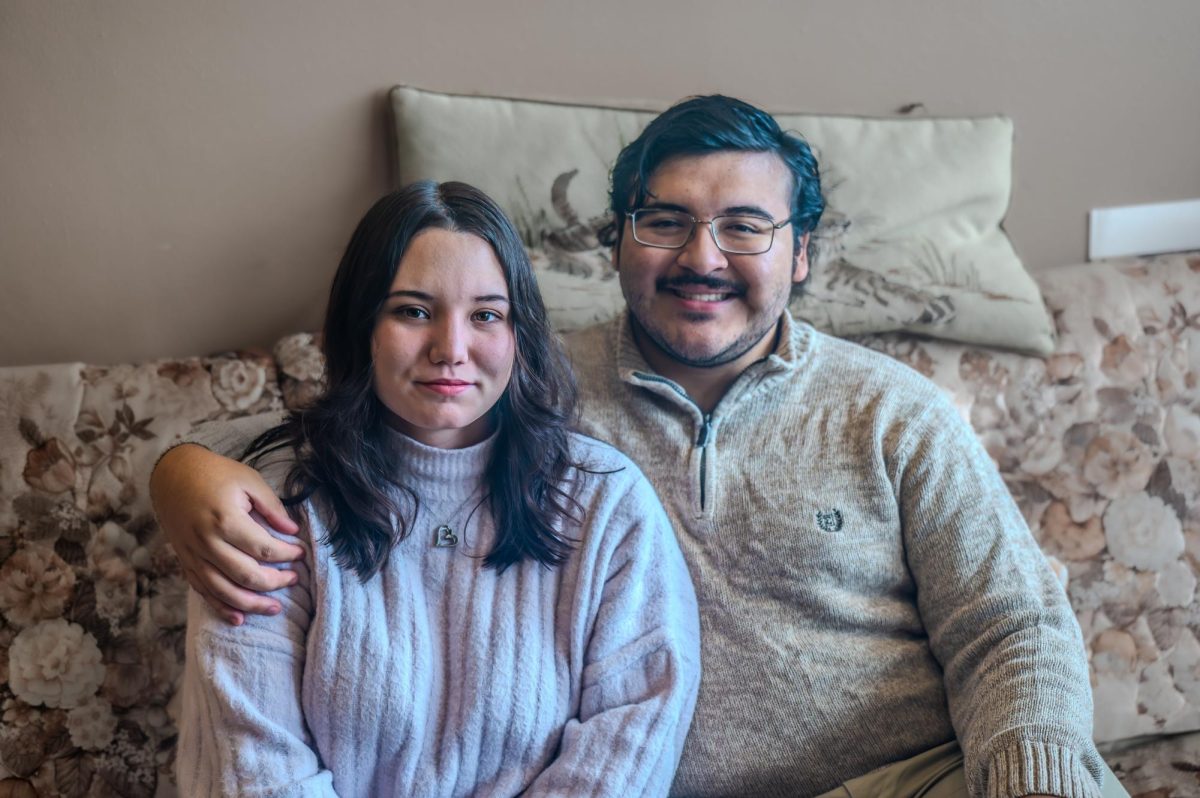Soft, doughy and ever-present at Out Takes, bagels are a great go-to food—even more so when they’re freshly baked. But while lathering on cream cheese and devouring every last morsel, it’s easy to forget where bagels come from and the time and effort that goes into making them.

Debbie Swartz, mastermind behind Busy Bee Bagels, decided to share her skills with members of the Grinnell community and partnered with the Chalutzim Committee to bring a Bagel Making Workshop to campus.
Eleanor Price ’14, a member of the Chalutzim Committee, touted the success of last semester’s Challah Baking Workshop as a motivation behind this activity.
“In the fall we did the Challah baking workshop and that was a really big hit, this was to show people how to make another relatively traditional Jewish food and use our remaining flour before Passover,” Price said.
For Swartz, conducting the workshop was a fun, rewarding activity that reminded her why she loves her work.
“I’ve had a lot of people come up to me and tell me how much they enjoy my bagels and it’s really gratifying,” Swartz said. “We just thought [the workshop] would be a fun thing to do and it was.”
At the workshop, Swartz showed students how to make “boiled-then-baked” bagels. Once the dough was ready, it was left to rise for a short while, and then she showed students how to shape the bagel before boiling, seeding and then baking it. This shortened version of bagel making enabled students to make and enjoy different kinds of bagels over the span of just a couple of hours.
Elaine Teo ’12, who describes herself as a bagel addict, was drawn to the workshop because she wanted to know more about how her favorite food was made.
“I eat bagels all the time so I thought it would be a good experience to try and make them,” Teo said. “The recipe is really flexible, I’m definitely going to use it. Maybe I’ll make a chocolate bagel … ”
The bagel workshop went above and beyond its ostensible purpose of teaching students a new skill; it enabled them to appreciate the complex processes behind foods they often take for granted.
“Food nowadays is so impersonal,” said Sammy Huang ’12, a workshop attendee. “The experience of making it yourself changes how you think of food. Now that I know all the steps involved, I’m appreciating it much better.”



















































